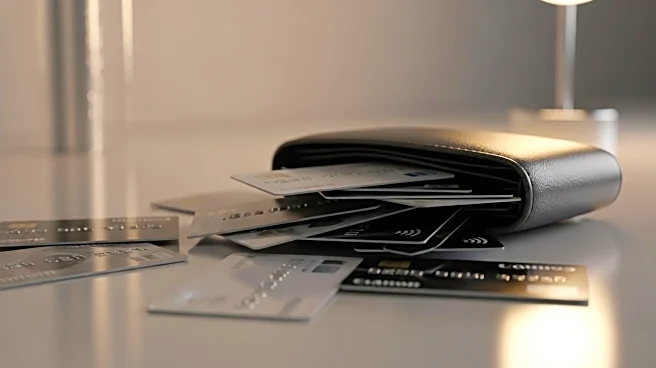What's Happening?
The UK's financial regulator has proposed allowing banks to set their own limits on contactless card payments or remove them entirely. This change could lead to increased spontaneous spending, as consumers would no longer need to enter a PIN for high-value transactions. Academics warn that this ease of payment may result in consumers spending more than intended, particularly with credit cards, potentially leading to increased debt.
Why It's Important?
The proposal could significantly alter consumer spending habits, with potential implications for personal debt levels and financial stability. Removing contactless limits may benefit consumers seeking convenience but could also pose risks for those prone to impulsive spending. The decision may influence similar policies in other countries, as regulators balance convenience with financial responsibility.
Beyond the Headlines
The shift towards unlimited contactless payments raises concerns about security and fraud, as well as the potential for economic abuse in vulnerable situations. It also reflects broader trends towards a cashless society, with implications for those who rely on cash for financial independence.











